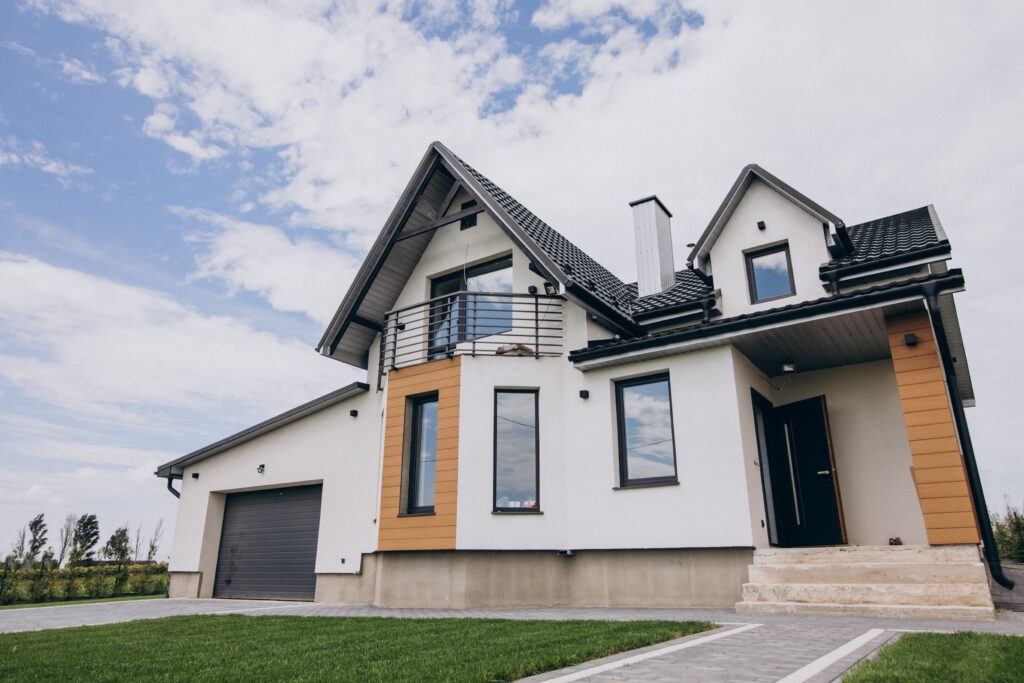
Discover your new home in the vibrant city of Austin, where the music scene is electric, the tech industry is thriving, and the outdoor lifestyle is unbeatable. However, with the city’s growing popularity comes a question on everyone’s mind: what is the cost of living in Austin? We’ve got you covered with an in-depth guide that covers everything you need to know, from housing to healthcare, and more.
Austin’s magnetic allure has drawn an overwhelming number of newcomers looking for an unparalleled lifestyle that combines creativity, innovation, and natural beauty. But fear not, we’ll help you navigate the city’s living expenses so that you can enjoy all that Austin has to offer without breaking the bank. So, are you ready to discover why Austin is the place to be? Let’s dive into the cost of living in Austin.
Cost of Housing In Austin
In the ever-changing landscape of Austin, Texas, housing expenses stand out as a significant factor influencing its residents’ financial calculation. For many Austinites, housing accounts for most of their monthly expenses, and as the city’s popularity grows, so does the cost of calling this vibrant city home.
The cost of a central one-bedroom apartment can be a significant consideration for newcomers who choose to rent.
- Monthly rents typically range from $1,500 to $2,500, demonstrating the city’s competitive and dynamic real estate market.
- At the end of 2022, the median rent for one- and two-bedroom apartments in Austin, Texas, was USD 1,634.
- Rents increased slightly after the coronavirus pandemic began, but rents increased by nearly 28 percent in October 2021.
The allure of the city’s cultural vibrancy and economic opportunities frequently coexists with the financial investment required to secure a comfortable living space. Meanwhile, for those thinking about buying a home, Austin’s real estate market presents its own set of financial considerations. With the average price of a house ranging around $300,000, owning a piece of Austin’s vibrant landscape comes at a high cost.

Related: Pro Tips for First-Time Homebuyers in 2024: Your First Home Awaits
Food Cost In Austin
The cost of living in Austin is rising, so groceries account for a significant amount of monthly expenses, averaging around $800 for a family of four. To understand this financial landscape, many locals turn to farmers’ markets like Barton Creek, which offer fresh, locally sourced options at competitive prices.
Residents who choose these community-focused options not only support local businesses but also strategically reduce their grocery bills. This careful spending reflects a broader trend in Austin, where people actively seek ways to balance the city’s vibrant lifestyle with practical financial considerations, influencing the salary required to live comfortably in this state.
Austin is a paradise for foodies. A typical restaurant meal may cost around $15 or more according to one’s preference. Numerous food trucks are serving delectable bites for under $10. Dining habits will have an impact on the cost of living in Austin.

Healthcare Expenditure In Austin
The cost of living in Austin is significantly impacted by the healthcare expenditures. Regular doctor visits can cost up to $200 for those without insurance, highlighting the city’s healthcare cost. If you have insurance, then the average cost for a doctor’s visit would be around 20-50$.
Thankfully, a large number of local businesses offer insurance to their staff members because they understand how important healthcare benefits are. Even with this benefit, healthcare costs continue to be a major consideration when analyzing Austin, Texas’s total cost of living.

Austin’s Transport Expenditure
Several factors, such as fuel prices, auto maintenance, and the availability of public transportation, affect the cost of transportation in Austin. An overview of some important factors is provided below:
- Fuel Prices: A major portion of transportation costs are related to the price of gasoline. The current average fuel cost is 2.4$.
- Ownership of a Vehicle: If you are a car owner, you will need to budget for costs like insurance, maintenance, and possibly parking. These expenses go toward the overall transportation spending plan. The average cost of a used car is around 30,000$ and the cost of a new car ranges from 60,000$ and above.
- Public Transportation: Austin provides commuter rail and buses, among other public transportation options. These services are run by the Capital Metropolitan Transportation Authority (CapMetro), and residents may find public transportation to be a cost-effective option.
- Walking and Cycling: Austin is well-known for being a bike-friendly city, and many citizens opt to commute on foot or by bicycle. This might be a reasonably priced and healthful mode of transportation.
- Taxis and Ridesharing Services: Austin is home to services like Uber and Lyft that offer more options for transportation. On the other hand, using ridesharing services can manage the cost of transportation overall.

Average Utility Cost
Utility costs impacts significantly the cost of living in Austin. A roughly monthly budget of 200$- $500 is needed to manage Austin’s utilities, which include water, heating, cooling, and electricity. A strong and fast Internet connection is essential for residents who are tech-savvy and navigating the digital world; a good connection should cost about $60 a month. However, the exact amounts may differ depending on individual usage and provider preferences.
Average Education Cost
The cost of living in Austin includes education expenses. Austin’s public school system offers free education to those who pay up to $950 in property taxes annually. On the contrary, private schools are more expensive, with yearly tuition costs ranging from $10,000 to $25,000.
With tuition starting at $11,000 per year and possibly going higher depending on the program, the University of Texas at Austin provides in-state residents with a top-notch academic experience at a reasonable cost for higher education.

FAQs: Cost of Living In Austin
What is the monthly budget to live comfortably in Austin?
An estimated budget for individuals, couples, or families ranging from person to person depending on their family dynamics, income, and lifestyle. However, an average estimated budget is as follows:
1. Housing: $1,200 to $3,500
2. Food: between $500 and $1,000
3. Transportation Costs: $200 to $500
4. Energy: $350 to $600
5. Medical Costs: $300 to $500
As a result, the monthly total expense can be between $2,750 and $6,500.
__________
Is Austin a good city for students?
According to a recent study, Austin is among the world’s top cities for students. The ‘Top 50 Student Cities in the World’ list for 2023 was published by Campus Advisor. Austin came in at number forty-one on the list and sixth among American cities.
__________
Is Austin as expensive as NYC?
If you were to rent in both cities, you would need about 9,816.9$ in New York, NY to maintain the same standard of living that you can have with 7,000.0$ in Austin. It depends on a person’s lifestyle.
__________
Is 120,000 a good salary in Austin?
Yes, it is quite good if you are living in Austin. However, it depends upon lifestyle choices and housing. Budgeting allows single adults in Austin to live on a salary of $60k. Families frequently need incomes of $100,000 or more to afford nicer homes and lifestyles.
__________
Is Austin a kid-friendly city?
Yes, Austin is generally considered a kid-friendly city. The city provides parks, family-friendly events, and a variety of family-friendly activities for kids of all ages.
__________
Summary of Cost of Living In Austin
The cost of living in Austin is an important consideration because living there requires both budgeting and excitement. An apartment can be rented for between $1,200 and $3,500 a month, plus additional costs for entertainment, groceries, utilities, and medical care. Spending wisely is essential, especially when it comes to major purchases like cars and housing. Many discover that it is possible to make it work with an annual income of between $60,000 and $80,000. You can enjoy all of Austin’s attractions including great music, tech opportunities, and outdoor adventures without going over budget.



